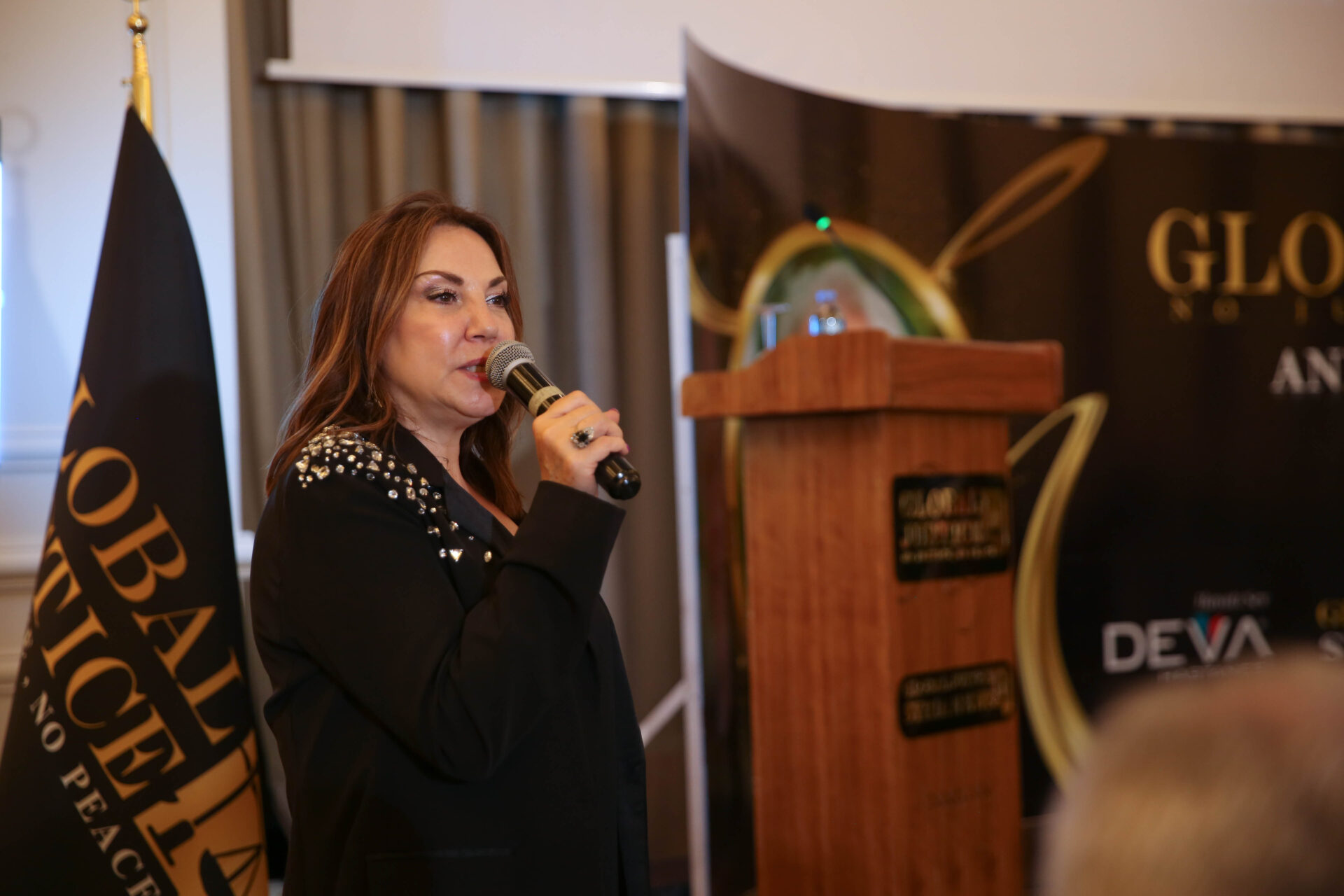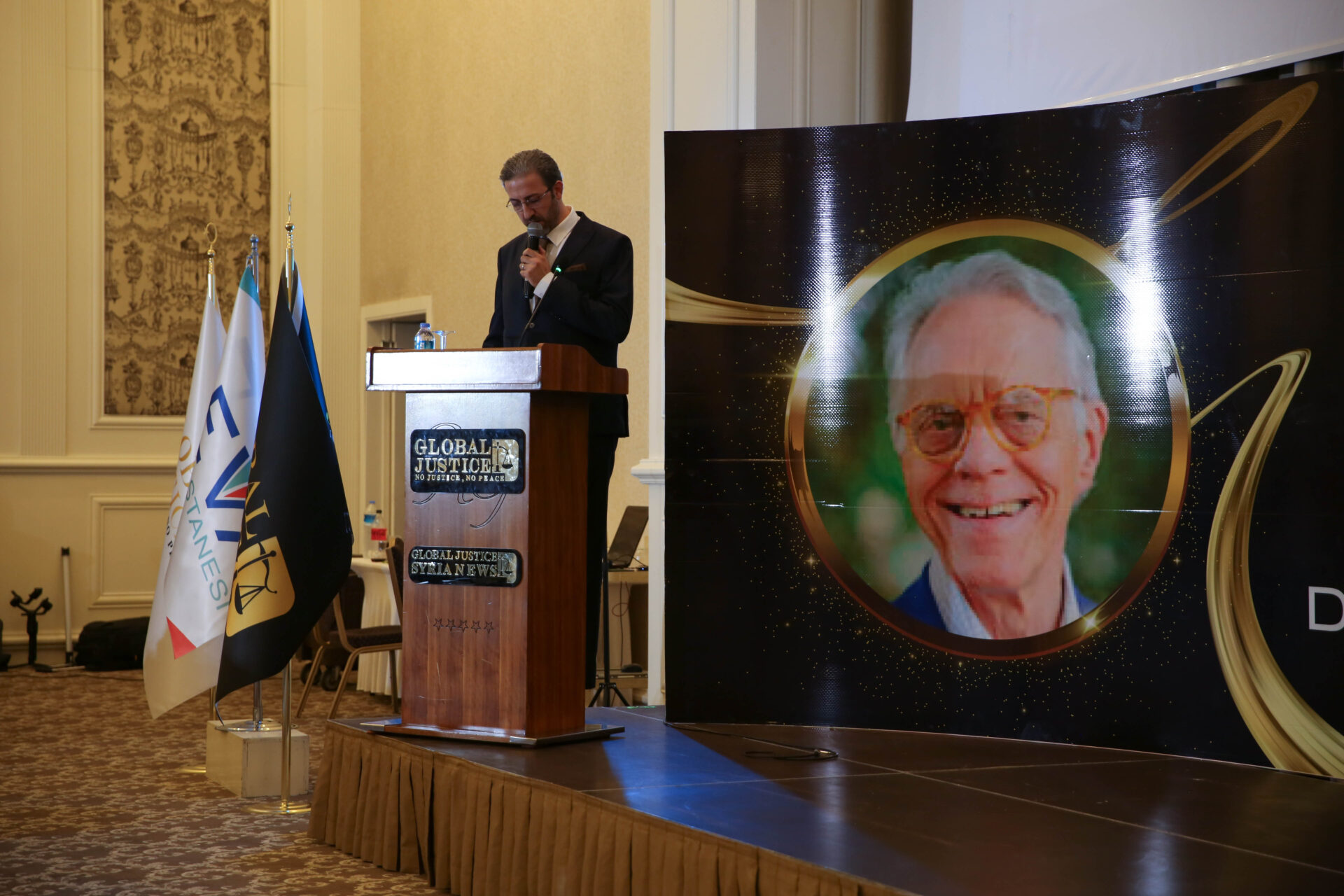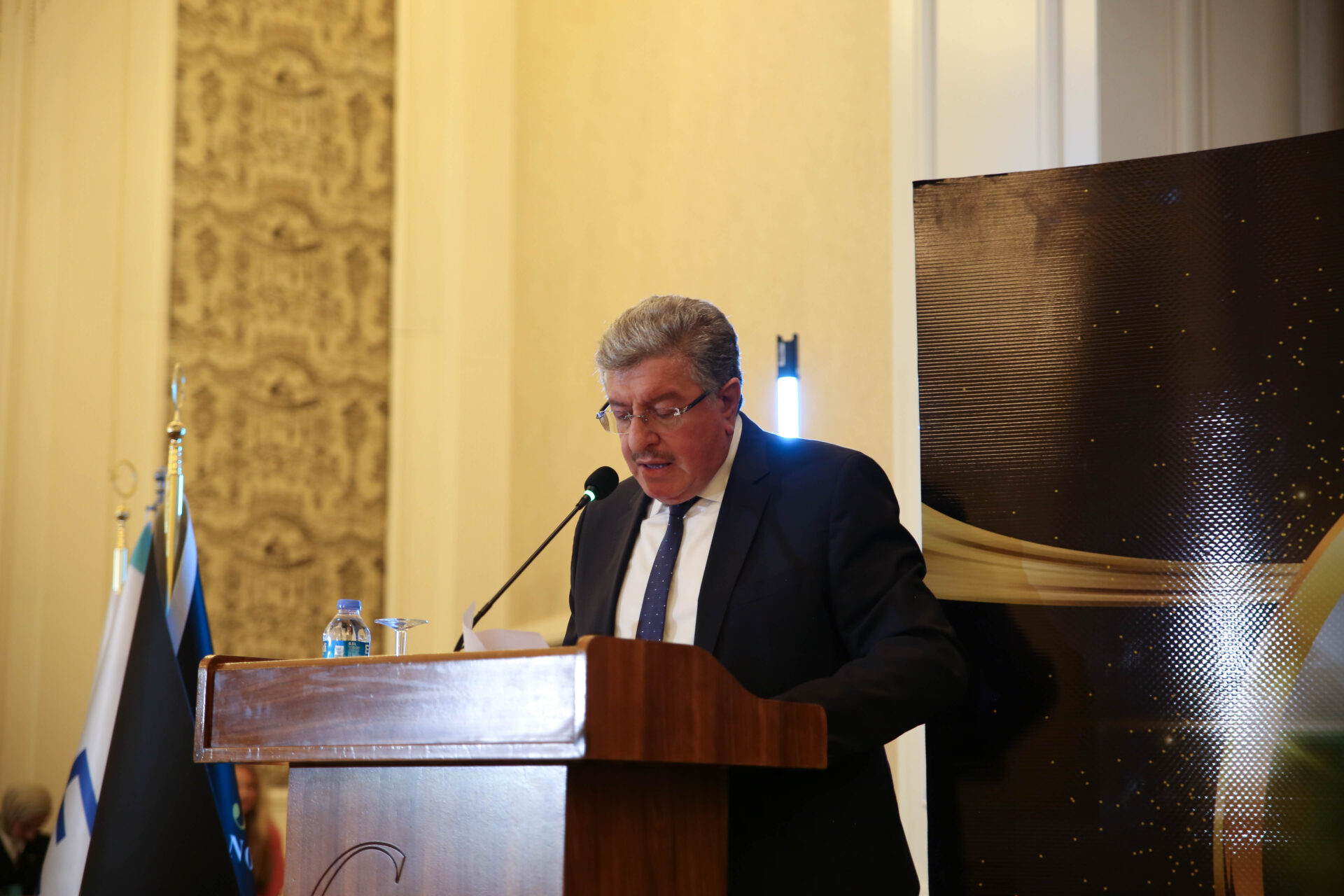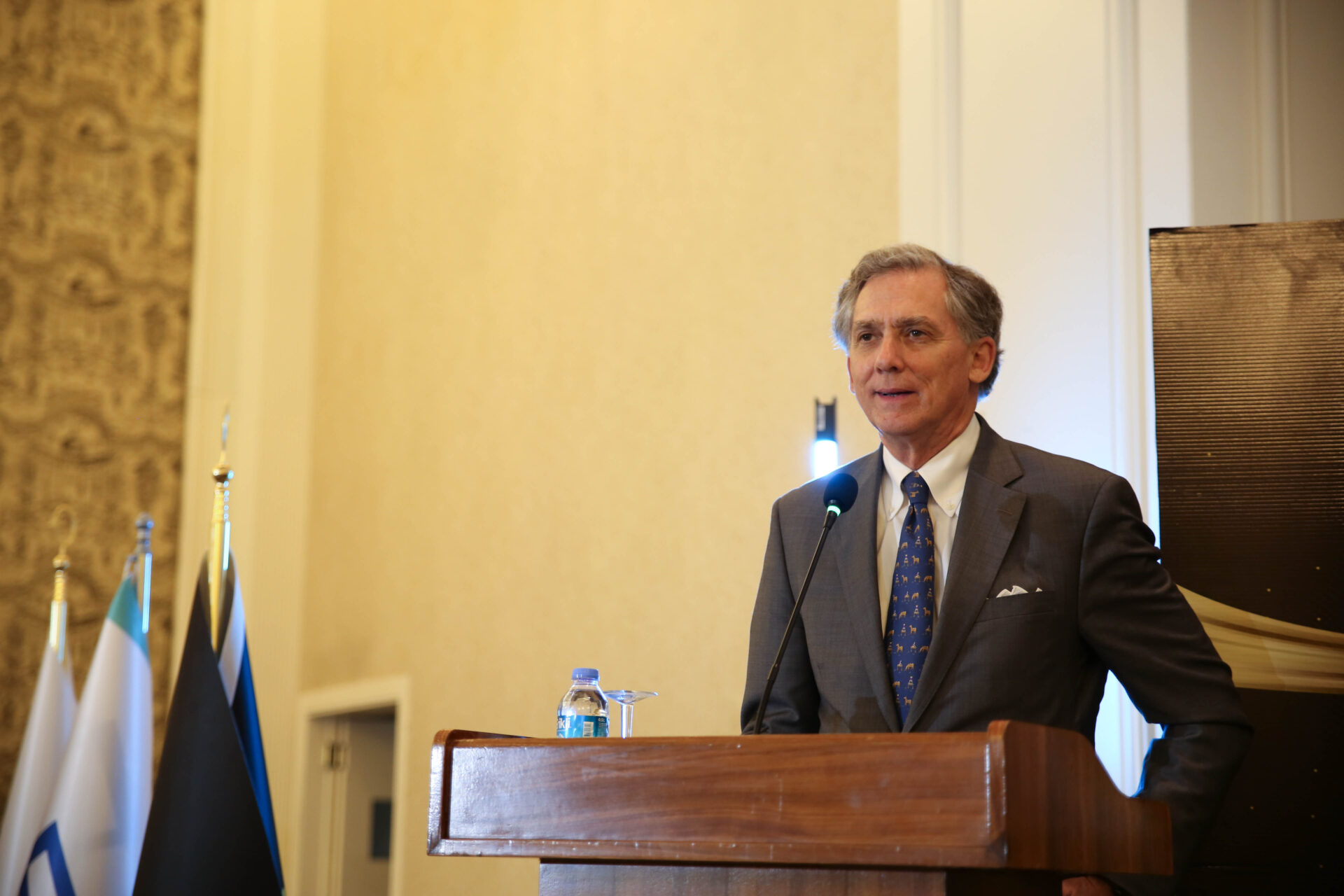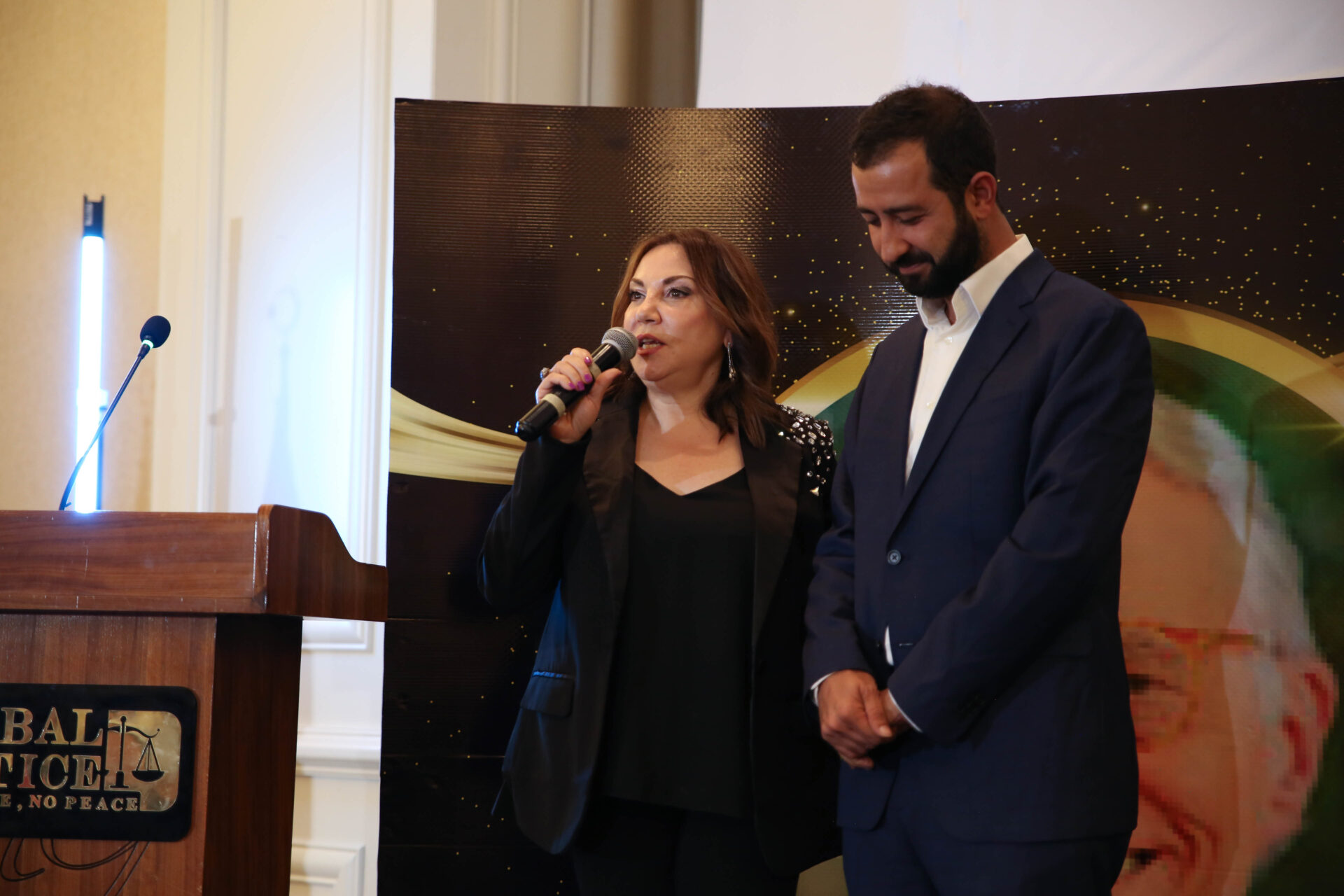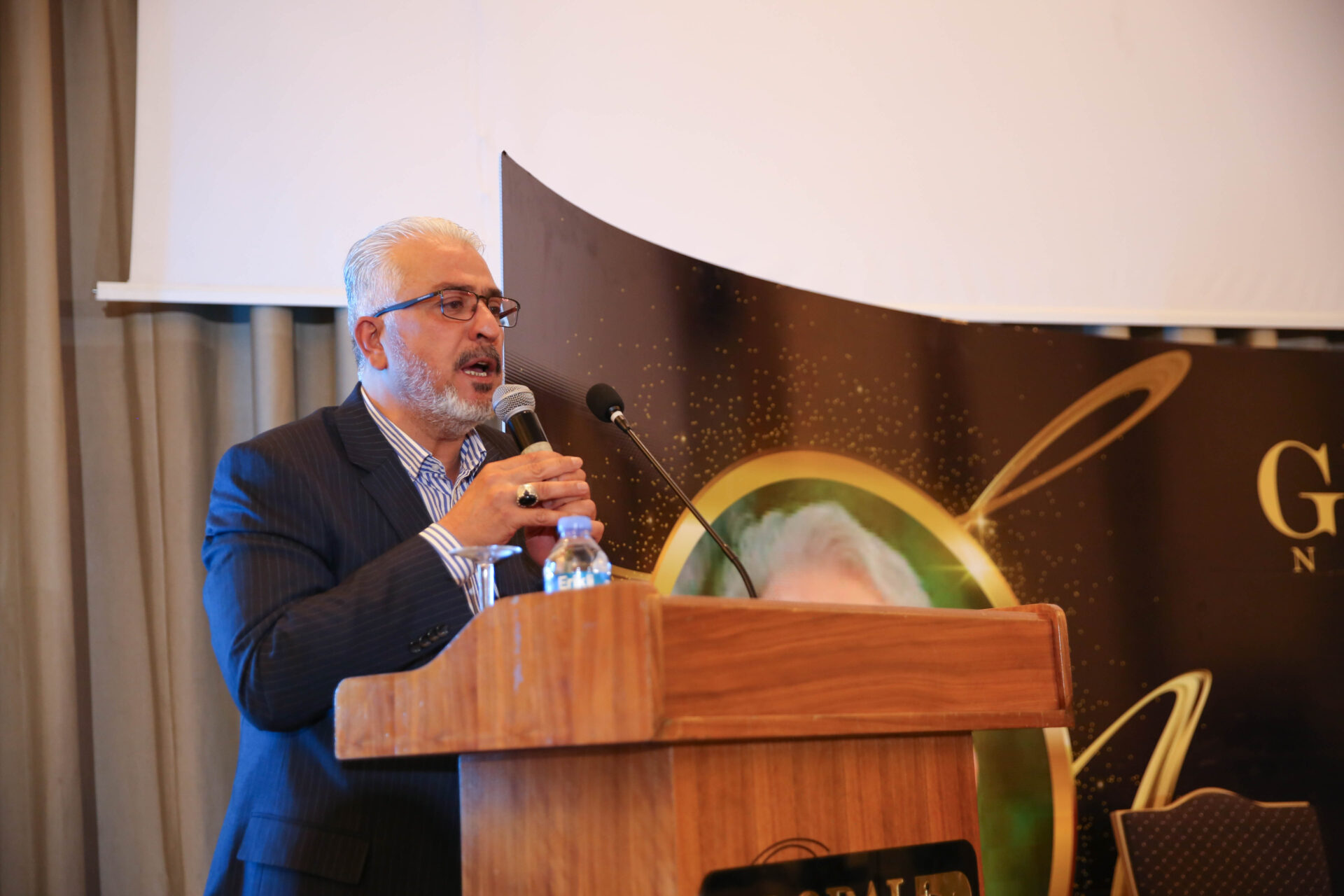The second annual conference of the Global Justice organization
The second annual conference of the Global Justice organization
The second annual conference of the Global Justice organization was held in Gaziantep, Turkey, on August 27th, 2023. The event was attended by several members of the U.S. Congress, the U.S. Ambassador to Turkey, prominent figures in the Turkish Foreign Ministry, and the National Coalition for Syrian Opposition and Revolutionary Forces, in addition to a delegation of Syrian businessmen and journalists.
In a humanitarian gesture, the conference honored to a prominent figure known for his support for the Syrian people and the Syrian cause, Jerry Adams, the Chairman of the Board of Trustees of the Syrian Emergency Task Force organization.
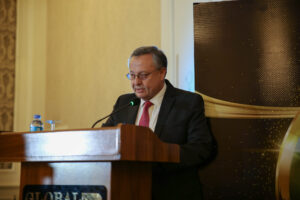 Dr. Haytham Al-Bizem
Dr. Haytham Al-Bizem“We believe that in the absence of genuine reforms in northern Syria, cases of reverse migration towards Turkish territories and subsequently to Europe will increase, especially among the youth who have lost hope in the future of their homeland. In our view, the solution involves the following:
- Empowering disadvantaged individuals everywhere to have the ability to create opportunities for themselves and others, serving as an effective means to eliminate the drivers of violence.
- Targeting families in that region to enable them to stabilize and provide the appropriate environment for the return of Syrian refugees from Turkey and all countries of refuge.
Dr. Al-Bezim also presented in his speech some of the projects that the Global Justice organization is implementing in Syria:
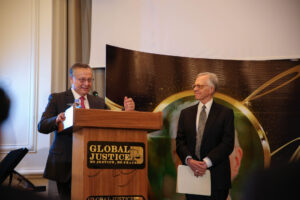 Dr. Haytham Al-Bizem
Dr. Haytham Al-Bizem
“I would like to mention the projects that Global Justice has undertaken and continues to expand:
1. Electricity: Global Justice and its investors have built solar power stations to meet electricity needs in agricultural areas controlled by Turkey, including Global Justice’s farms.
2. Agriculture:Expanding the project of growing corn, cotton, wheat, and irrigation.Creating more than 1000 actual job opportunities.Introducing agricultural varieties from distant Syrian lands to various Syrian territories, turning the tragedy of Syrian displacement into an opportunity for knowledge exchange among Syrians, solar-powered water extraction, and restoring greenery to the lands.
The conference included a presentation of a video clip showcasing the projects of the Global Justice organization in Syria, especially their latest project in the Ras al-Ain area in northeastern Syria, which aims to revitalize agricultural resources and agricultural investment.
3. Digging water wells.
4. Establishing an olive oil production factory.
5. Livestock will be purchased from Turkey, including goats, cows, sheep, and chickens.Building small factories for milk and cheese production, and more.Providing small loans for small projects, such as a bee farm for honey production.
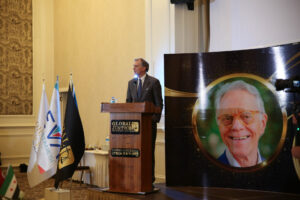
These projects have begun, are about to start, or are in the implementation stages in collaboration with other partners like STH Company, DEVA, SAMS, and SETF.
1. Education: The Rukban Camp project in collaboration with the Syrian Emergency Task Force team. Working on rapid plans to ensure that the education and health sectors can accommodate the new arrivals.
2. Healthcare: Cancer treatment center with radiation therapy in collaboration with DEVA Hospital.
3. Solar panel manufacturing – installation and training from Germany in collaboration with STH Holding.
4. Solar farms producing 52 megawatts to cover the electricity needs of northwest Syria and reduce electricity costs for residential and industrial sectors.
5. Cement factory in collaboration with STH Holding.
6. Water project to bring water from the Euphrates River to the city of Bab.
7. Research and development center in advanced technology in collaboration with the American company Monitor Health.
8. Battery manufacturing plant.
9. Wired network (Sham Al-Mustaqbal) – 300,000 subscribers.
10. Internet services.
11. Banking services.
12. Prefabricated houses.”
Dr. Al-Bezim invited the participating delegations from Turkey and the United States to provide assistance for the development of the organization’s projects in Syria, saying: “I would like to call upon the United States and Turkey, as well as investors. We are seeking assistance and licenses from Turkey and the United States:
1. Protection, support, and security for the Turkish-controlled area to attract Syrian investors to participate in our mission.
2. Granting financial facilities or medium- to long-term loans to companies and institutions interested in investing in northern Syria, especially in the following fields: Fast roads, Prefabricated housing manufacturing.The water project to bring water from the Euphrates River to the city of Bab.
3. Licensing banking systems: Establishing branches of Turkish and non-Turkish banks so that workers can receive their salaries. Currently, the area controlled by Turkey does not have any banks.
4. Encouraging the voluntary return of Syrian refugees from Turkey to northern Syria by creating jobs for them.
5. Licensing wireless phone and internet networks.
6. Donating seeds, tractors, and irrigation systems for agricultural projects.
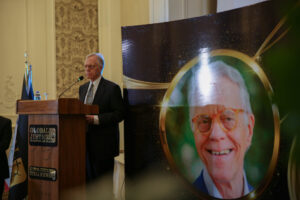
If Turkey and the United States are interested, we can create a small group to connect Turkey, the United States, The Interim Government, businessmen, and the Global Justice Initiative/Syrian Emergency Task Force Team to continue building northwest Syria and making it appealing to all Syrians around the world.”
The conference also featured a speech by the Head of the Media Office in the Syrian Emergency Task Force Team, Celine Al-Qassem. In her speech, she referred to the beginnings of the peaceful movement in Syria:
“As Syrians, time and time again, we have witnessed many who were aware of the brutal dictatorship imposed upon us. Yet they chose to overlook our pain, our struggle, our deaths, our displacement, and ignored our suffering. Many of them did not take the step to know the actual narrative, the truth. They took the easy way out, categorizing us as terrorists and labeling our revolution as a ‘civil war’.
But the reality is quite different. In March 2011, we went to the streets peacefully, carrying flowers and demanding freedom and dignity. The response came, we faced bullets, arrests, torture, and even chemical weapons. The generation that has grown up witnessing and experiencing the crimes committed by this murderous regime repeatedly against civilians over the past 12 years is the generation that Assad should fear more than any other. As a young Syrian, I am incredibly proud to continue a revolution that began when teenagers in Daraa started writing slogans against Assad on the walls of their school in 2011.”
AL-Qassem concluded her speech with the recent events happening in Syrian cities:
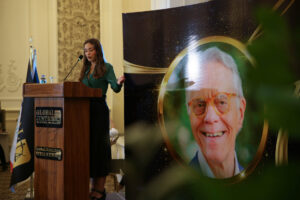
“Today, in cities and neighborhoods like Suwayda, Tartous, Daraa, Deir ez-Zor, Idlib, Azzaz, Aleppo, and many others, they are once again demanding the fall of the criminal Assad regime. People in the areas under Assad’s control are raising the slogan ‘We don’t want you,’ without fear, despite being fully aware of the risks they face.
I hope the international community doesn’t repeat its past mistakes and truly listens to the voices of the street, and works with us to ensure the implementation of UN Resolution 2254 in Syria today, not tomorrow.”
The conference also included a presentation of a short film titled “The Syrian Holocaust,” prepared by the Global Justice organization. The film depicts the social and political situation that led to the popular uprising in Syria in 2011 and how the regime responded with bombardment and displacement to suppress the people’s demands. The film also highlighted the importance of the Caesar Act and the role of media in exposing the crimes committed against the Syrian people.
The conference also featured a speech by the Chief Doctor at DEVA Hospital in Gaziantep, Turkey,
Dr. Beyhan Tahmazoglu, expressing the hospital’s support for protecting civilians in Syria and the assistance provided by DEVA Hospital to Syrian refugees.
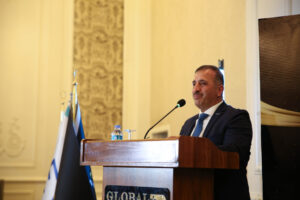
“The Syrian revolution that began in 2011 ignited a fire in our hearts, like any war that targets humanity. And like any human acting with conscience, I also thought of doing something for our brothers there. Initially, we supported refugees who left their homes in Syria and came here to secure their stability. We provided job opportunities for them at DEVA Hospital. We treated these patients in the early days of the war when civilian injuries were more common, and we supported them throughout the process of readjusting to life.
Later, we assisted in securing basic life necessities for the war victims to survive. We provided various forms of aid in fields like health, food, clothing, and heating. However, the conditions of the region and its needs changed in a climate of partial peace and security. As a volunteer who visits the area frequently, I’d like to share some observations.
There’s a need for more shelter to rebuild Syria. Considering the future of the children there, steps should be taken regarding their education. New schools should be built, and the quality of education should be improved. To enable the people living there to stand on their own feet, the focus should be on production areas like agriculture and job opportunities.”
Mr. Behyan highlighted the necessity of supporting the medical sector in northern Syria and developing the healthcare system, especially for patients with cancer and chronic diseases:
“As for the health condition of Syrians inside Syria, even if they receive basic healthcare services, more advanced tests and treatments cannot be conducted. After heart disease tests, interventions like heart catheterization, vascular surgery, stents, and heart surgery cannot be performed. Cancer diagnosis is not possible due to inadequate MRI and CT imaging facilities in the region, and cancer treatment is unavailable due to the lack of oncology treatment centers. Necessary items like prosthetics cannot be provided in the field of orthopedic surgery due to financial difficulties. Shock patients cannot be treated. As a result, the area’s greatest need at the moment is a specialized health center for oncology treatment, heart and vascular surgery.”

